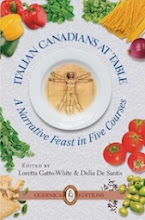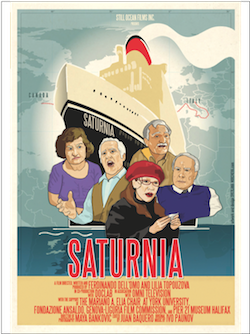 Die Buchse der Pandora or Pandora’s Box (Lulu) by G.W. Pabst (Germany, 1928) with English subtitles
Die Buchse der Pandora or Pandora’s Box (Lulu) by G.W. Pabst (Germany, 1928) with English subtitlesPandora’s Box (Lulu) screenplay adapted by Ladislaus Vajda translated from the German by Christopher Holme (Simon & Schuster, 1971) 136 pages
Few actresses have intrigued me as much as the silent film actress Louise Brooks with her wonderful sheath of shining black hair and beautifully expressive dark eyes. I can honestly say that she has enchanted me solely with the role of Lulu in Pandora’s Box and her role as Thymiane Henning in Diary of a Lost Girl (1929). Eighty years after the fact she still captivates both with her beauty and the freshness of her performance.
R used to obsessively search for, and collect, scripts for old films. Once he contemplated selling them or giving them away. I’m glad he didn’t because otherwise I wouldn’t have this pretty 1971 edition of the film script of Pandora’s Box complete with film stills.
The Criterion Collection produced an excellent print of the film complete with a sometimes intrusive, sometimes annoying, classical music soundtrack, which bears little resemblance to the action on screen. There is a naturalness of manner here that seems absent from most silent films. It tackles, or alludes to, so many subjects that would disturb a squeamish viewer: incestuous longings and Oedipal struggles, murder, prostitution, suicide, women exploiting older men for money, violence, lesbianism, and ends fatefully with the appearance of Jack the Ripper.
The plot of the film is an amalgamation of two plays by Frank Wedekind: Die Buchse der Pandora and Erdgeist (Earth Spirit).
The chiaroscuro of the Expressionist style accentuates Brooks’ beauty – the blackness of her hair, the porcelain quality of her skin, the richness of her dark lipstick.
Beautiful, amoral Lulu (Louise Brooks) has a lover, Dr. Peter Schon, played with intensity and passion by Fritz Kortner. Schon, a newspaper owner, who wants to marry a girl of high standing to enhance his career despite his relationship with Lulu. Lulu also entrances Schon’s son Alwa Schon (Franz Lederer). Schon warns Alwa away from Lulu for to marry such women, as Lulu would be “suicide”.
Lulu is shadowed throughout the film by Schigolch (Carl Gotz) who is variously described as her “first patron” or sugar daddy, depending on which print you see. He is a repulsive but protective older man who follows her from one escapade to another. Brooks went on to say later that he smelled the part.
Lulu aspires to the stage and agrees to appear in Alwa’s revue. Louise once described herself as the “world’s worst actress”. One viewing of this film should dispel that theory. The look of utter dejection on her face when she first sees Schon’s fiancée at the revue is unforgettable. The array of emotions that pass over her lovely face says more than any book might.
I don’t know what medium will, or could, replace film but I can’t imagine what would showcase the beauty of someone like Brooks in a better fashion. Someone once said that it is impossible not to venerate the image of beautiful creature who we have taken and projected on to a fifty foot screen. The medium is conducive to veneration. Like Dietrich or Garbo you can’t take your eyes off Brooks whenever she’s on screen.
All who encounter her are mesmerized, Schon, Alwa, even Countess Anna Geschwitz (Alice Roberts playing a thinly veiled, frustrated lesbian admirer).
Schon cannot resist Lulu even as he claims that his marriage to her will destroy him. Lulu does indeed become a widow (and on her wedding night too) and sets her sights on his son, the handsome, gullible Alwa. They are driven to a reckless, wandering life with Alwa relying on gambling to sustain them and an Italian Marquis attempting to pimp Lulu out in exchange for his silence about her whereabouts as she is sought by the police for Schon’s death.
Lulu quickly abandons the Countess Geschwitz whom she sweet talks into trying to obtain money to pay off the Marquis when it is discovered that Alwa is a card cheat. They beat a hasty retreat to London by boat where she then subsists as a prostitute supporting a near catatonic Alwa and the ever leering Schigolch living in abject poverty.
Anachronistically, and inexplicably, she meets up with Jack the Ripper and invites him home even though he has no money because she “likes him”. He wavers but eventually Lulu succumbs – her death is seen only by a single shot of her hand, clutching her new lover and then slackening when she is killed. The Ripper terrorized London in the 1880s, Lulu is clearly a flapper in the 1920s but this may be the result of the amalgamation of the two Wedekind plays.
“Pabst and Lulu”, Brooks’ essay about Pabst and the experience of working on that film, is wonderful as an introduction to the script by Vadja. Her final assertion alarmed me though. She contends that Lulu receives the “gift” of death by a sexual maniac through her death, something that she had always wanted since childhood. The evolution in thought about women and violence is startling …who would dare to contend such an absurd, cruel thought now?
Like the Pandora of Greek mythology unleashing evil upon the world by opening the box, Lulu destroys all in her path and hence must be punished accordingly. Lulu must suffer, not only suffer but to die a horrible death at the hands of a killer to atone for her unbridled sexuality, for her utter destruction of Schon, Alwa and any male who crosses her path.
The premise is misogynistic, even cruel, in its depiction of Lulu but that does not mitigate the power of its archetypes or the beauty of its images. If beauty were a currency, Brooks would have been rich beyond compare.
More on Louise Brooks:
- Lulu in Hollywood by Louise Brooks
- The Girl in the Black Helmet by Kenneth Tynan, reprint of a 1979 New Yorker article
- Louise Brooks by Barry Paris (Knopf, 1989)
- A Conversation with Louise Brooks by Richard Leacock, an interview during the filming of Lulu in Berlin (1984) which may be viewed on the Pandora's Box (Lulu) DVD released by the Criterion Collection










No comments:
Post a Comment